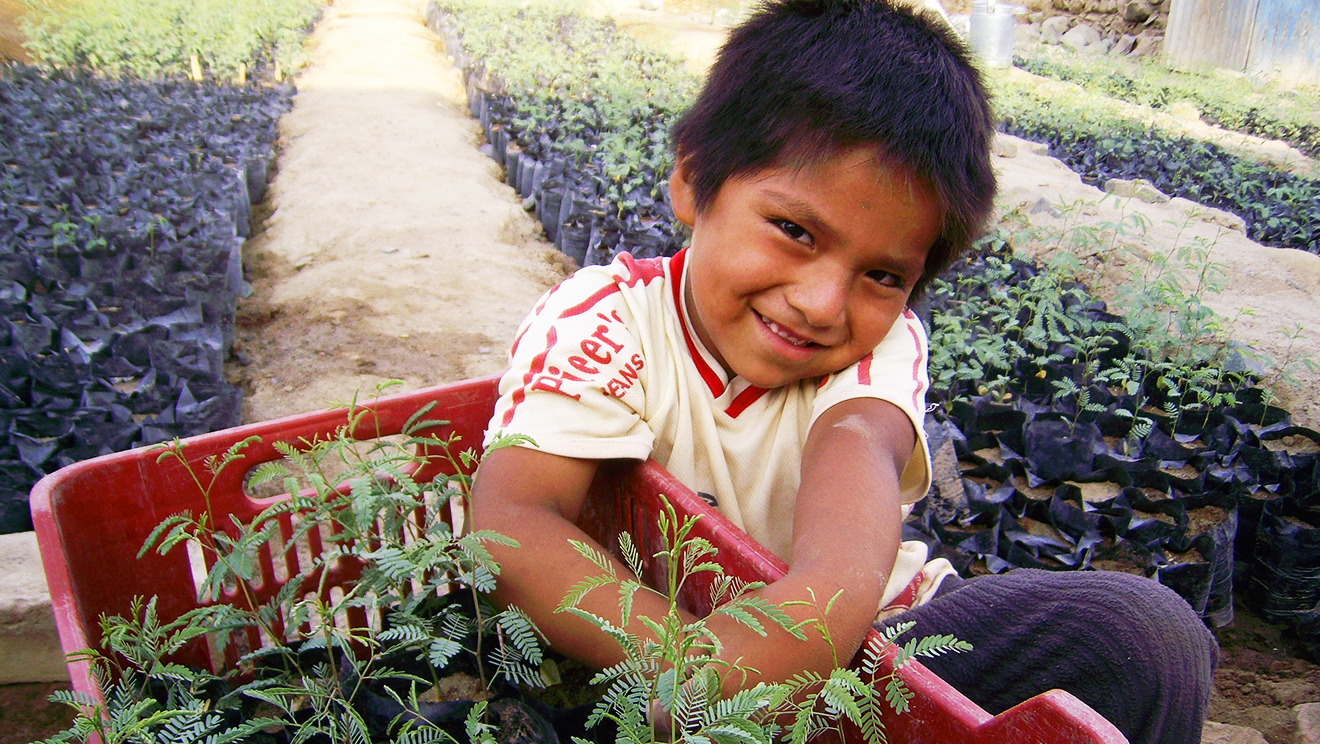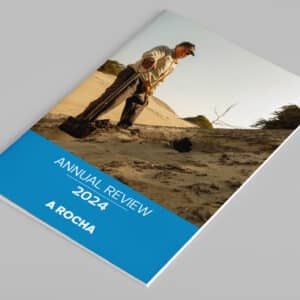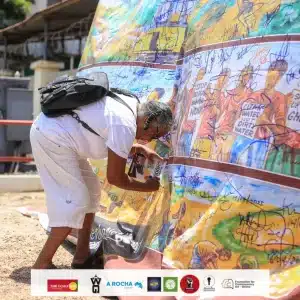‘Releasing children from poverty in Jesus’ Name’: that’s the mission of Compassion Netherlands. Years ago, Compassion Netherlands realized that combatting poverty has a strong link with the theme of sustainability, now a point of attention in policy. Compassion is an international charity working to end child poverty, while trying to keep their carbon footprint as small as possible and invest in the resilience of the families they serve.
Charities working in the global south, like Compassion, see that those who often contributed the least to climate change are hit the hardest by the impacts. Working through local churches, they support children with food, medical care and more. Compassion Netherlands sees that the regions where the children live are impacted by climate change and that there is often little resilience.
‘Years back we thought that sustainability was something you did because it was good, and then you also had poverty reduction’, says Wietse Kooistra, COO of Compassion Netherlands. ‘But now we see those two are connected. The excessive consumption of Western countries encourages pollution, child labor and modern slavery. What we do in the West has a lot of effect on children and families we want to serve.’
Since 2019, Climate Stewards has calculated from 2019 the carbon footprint of Compassion Netherlands. After calculating their footprint, Climate Stewards and Compassion Netherlands always have a chat about what they both have been doing to reduce emissions. They encourage each other continuously to reduce their footprints. The first few years were a bit easier, with things like LED light bulbs. Now they are getting to a point where the low-hanging fruit has been picked, and it gets harder to reduce emissions further.
Sustainability is a point of attention for all teams within Compassion Netherlands. To keep moving forward, teams focus on different aspects of sustainability: the Facilities team is looking at things at the office, like use of energy, meat consumption and carpooling. For example, their office furniture is partly second hand. The Field Experience team is looking at employee travel – within Europe, they travel by train instead of flying.
Internationally, resilience is especially important for churches, children and their families. Taking care of creation and knowing how to deal with the consequences of climate change are important topics. For instance, in Peru, Compassion is giving lessons and training about sustainability to help families adjust to the changing environment and increase their resilience. Compassion provides solar solutions, stimulates recycling and help starting a vegetable garden. The children also go to the beach and pick up litter. The initiator of the cleanup is the local church, which also teaches the children about good stewardship.
It is inspiring to see how Compassion has been working on integrating sustainability into their organization. To help children break the cycle of poverty, sustainability in all aspects of their work is important.



